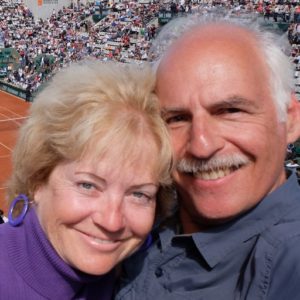When you spend days and days with a person, even if they are your hired guide, you eventually start to get very personal. When we talk about our own lives and ambitions, our companions often open up about the real world of their country, one you don’t usually see as a tourist. Moreover, some of them talk about what they hope to do with their futures.
We’ve had this experience in Laos (CLICK HERE for our Laotian Dreams post) and Cambodia (CLICK HERE for our Cambodian dreams post). We can now add a Vietnamese experience as well. The Laotian aimed to get back to the land and be self-sufficient in an uncertain world. The Cambodian’s ambition was to build a conventional life and then eventually return to the monastery as a monk. These dreams likely don’t reflect what their countrymen might prefer, nor would the one we shared with a Vietnamese guide necessarily reveal insights about his country. All together, though, the three demonstrate how many of the people in SE Asia are hoping to deal with the changes in their lands.
Our Vietnam guide already had a more complicated situation. In Saigon, he met a Polish woman who was teaching English there. The two married, and had a child. Teaching English has long been a highly prized skill in the country, and we’ve encountered several others here doing that for years. However, so many teachers have come here that their numbers apparently have exceeded even the demand. So, the wife moved to the Netherlands where she had found work.
Then where was his life going?
Unlike our Laotian guide, he didn’t think he had the option of returning to a farming life, though.he had grown up in a farming village on the Mekong delta. There was enough land owned by the family for him to inherit a reasonable portion and work that farm. But, after years in the big city, and a lot of mental distance, he thought he no longer had the skills to return to that arduous life – and apparently did not have the desire for it either.
He did have a yen for greater material well-being. When he began as a guide, he earned 5 million dong, or $250 (per month, we think, because the average worker here earns just $150 per month). That meant he could get a place of his own to live. When his income increased to 7 million dong, he could own an apartment and start buying things – TV, microwave, washing machine, refrigerator and so on. And, he admitted, he started buying all these things even though his well-paying job kept him more and more on the road with clients, not at home. Plus his family off in Europe had another place.
Yes, he did understand the fiendish bargain he was making. There he was on the modern treadmill but he dreamed of more. Within the year, he planned to join his wife, not just to be with his family, but to study at a Dutch university – for virtually free. In the Netherlands, he would earn his advanced degree in tourism. Then he would know enough to run a business handling travelers to Vietnam, not just be the hired help. That meant he could bring his wife and child back with him as well, rather than live continents apart.
A grand ambition, international style, and one whose materialistic perils we could warn him about from the American experience. Though he was aware of the pitfalls, it was clear he was eager to make it happen. He relished the potential of what he could build, and felt great delight that now, as never before in Vietnam, he could pursue his dreams.

